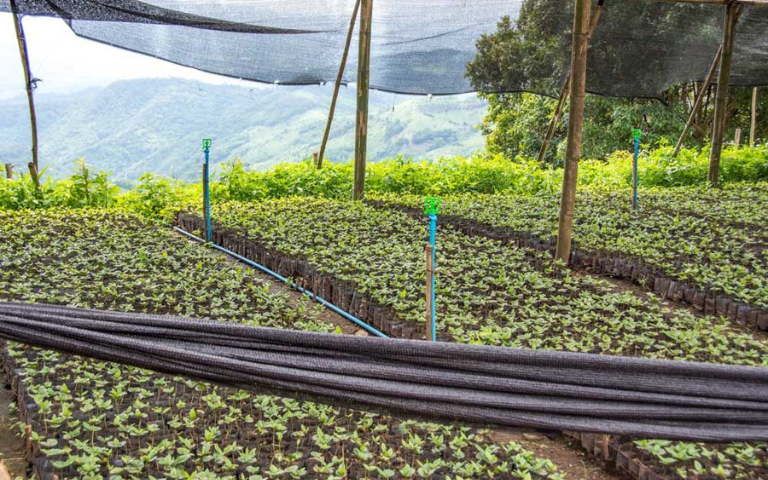Thailand’s coffee production continues to evolve with support from Caffe De Aromi
Thailand has become known for producing good quality coffee beans due to several factors, including its favorable climate, diverse geography, and a focus on improving agricultural practices. Here are some key reasons:
Climate and Altitude:
- Thailand’s coffee-growing regions benefit from a tropical climate with high altitudes. The combination of warm temperatures, high humidity, and ample rainfall creates an ideal environment for coffee cultivation.
- Altitude is crucial for coffee flavor development. Higher altitudes typically result in slower bean maturation, allowing for more complex flavors to develop in the coffee beans.
Geographic Diversity:
- Thailand has diverse geographical features, including mountains, plateaus, and valleys. Different regions offer unique microclimates, which contribute to the cultivation of distinct coffee varieties.
- Regions like Chiang Mai, Chiang Rai, and Doi Chang are renowned for their coffee production, each offering unique terroirs that influence the flavor profile of the beans.
Varietal Selection:
- Thai coffee farmers have been experimenting with various coffee varieties, including Arabica and robusta. They have been focusing on selecting and cultivating varieties that thrive in the specific conditions of their regions, leading to improved quality and flavor complexity.
Sustainable and Innovative Farming Practices:
- Many Thai coffee farmers have adopted sustainable and innovative farming practices. This includes agroforestry, organic farming, and shade-grown methods. These practices not only enhance the quality of the beans but also contribute to environmental sustainability.
Investment in Processing Technology:
- Thailand has invested in modern processing methods to ensure the quality of coffee beans. Improved processing techniques, such as pulping, fermentation, and drying, play a crucial role in preserving the unique flavors of the beans.
How these factors affect the flavor profile:
- Bright Acidity:
-
- The high altitudes and favorable climates contribute to a bright acidity in Thai coffee. This acidity adds a lively and crisp character to the flavor profile.
- Complexity of Flavors:
- The diverse geography and microclimates lead to the cultivation of beans with diverse and complex flavor profiles. Thai coffee can exhibit a range of flavors, including floral notes, fruity undertones, and hints of spices.
- Balanced Sweetness:
- The slower maturation process at higher altitudes allows for the development of natural sugars in the coffee beans. This contributes to a balanced sweetness in the flavor profile.
- Clean and Crisp Finish:
- Improved processing methods and attention to detail result in clean and well-defined flavor profiles. Thai coffee often has a crisp finish, free from undesirable aftertastes.
Conclusion
In summary, Thailand’s commitment to quality through favorable natural conditions, careful varietal selection, and modern farming practices has positioned it as a producer of high-quality coffee beans with unique and appealing flavor profiles.






